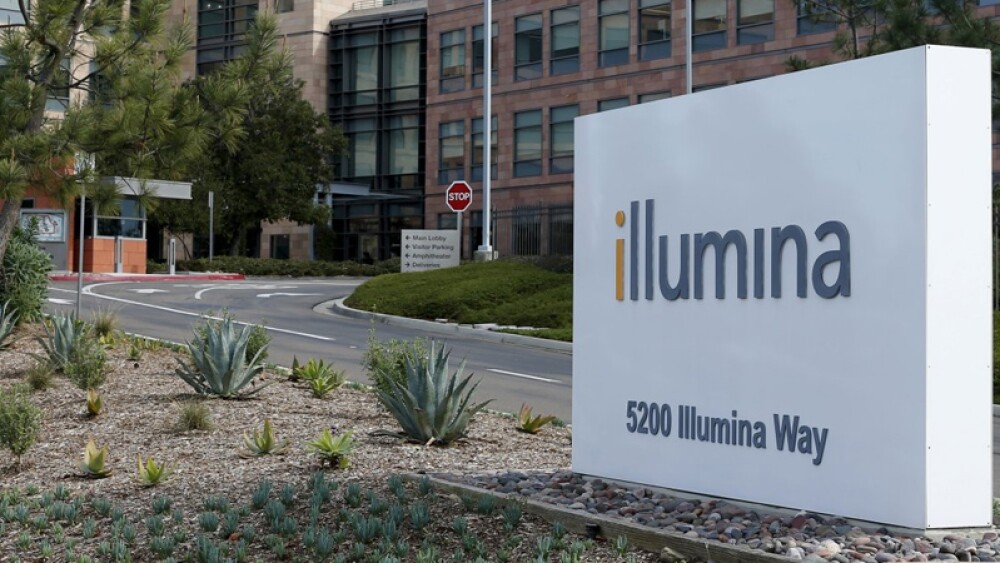March 10, 2017
By Mark Terry, BioSpace.com Breaking News Staff
Who doesn’t wish they had invested in Apple when it was just starting out? Or a more recent example, Amazon.com? Brian Feroldi, writing for The Motley Fool, looks at five company stocks that he and his crew of analysts think could have Amazon-like growth. They include MercadoLibre (MELI), WisdomTree Investments (WETF), First Solar (FSLR) and NVIDIA (NVDA). But for our purposes, we’ll look at what Feroldi himself had to say about Illumina .
From previous articles, Feroldi likes Illumina, which is the world leader in developing next-generation sequencing technology. In November 2016, Feroldi discussed how Illumina fit into Warren Buffett’s criteria for investing in stocks. Those include—large purchase of at least $75 million in pre-tax earnings, consistent earnings power, strong return on equity with little or no debt, management in place, a simple business, and an offering price. On five out of the six—Feroldi ditched the last as irrelevant—Illumina compared pretty well.
Now he’s focused on growth in DNA sequencing, noting that although few people have had their genomes sequenced, prices are now coming down and there’s more relevance than ever for having it done. “Illumina,” Feroldi writes, “is the dominant player in the genomic-sequencing market. The company sells both the machines that sequence the DNA and the supplies that are needed to run each test. This razor-and-blade model has allowed Illumina’s revenue to rise rapidly even while the cost of performing a test has fallen dramatically.”
Also, Illumina launched its NovaSeq series, which is driving the costs down even further. It was at one time the Holy Grail to sequence the human genome for under $1000, which Illumina managed recently. The NovaSeq series has the potential to price sequencing at around $100. If that can be accomplished, much of the promise of personalized medicine will be in reach and insurers will have relatively little argument against reimbursing for it.
To reiterate some of Feroldi’s points from November:
1. $75 million in pre-tax earnings.
In 2016, Illumina reported $2.4 billion in revenues. Its pre-tax income was $561.17 million.
2. Consistent earnings power.
Not so much. It’s done well over the last decade, but profits aren’t always consistent with revenue growth. In November, Feroldi wrote, “While the company has been solidly profitable over the last five years and should continue that trend into the future, it is not clear to me that Buffett would be willing to overlook Illumina’s profit dip in 2008.”
3. Strong equity return and low debt.
This is a more complicated topic in terms of Illumina, since Buffett apparently prefers to invest in companies that create high returns on capital without having a lot of debt. Illumina fits into that category, but Feroldi wrote, “Illumina’s return on equity has soared recently as its business has started to scale, but the company has taken on more than a billion dollars in long-term debt to get there.”
4. Management in place.
Illumina’s chief executive officer, Francis deSouza, is relatively new, although he started as president in 2013. The company’s former chief executive, Jay Flatley, is still executive chairman, and chairs two of Illumina’s subsidiaries, Helix and Grail. No problem on that front.
5. A simple business.
Well, no. Warren Buffett is noted for avoiding businesses he doesn’t understand, so he often invests in candy makers, newspapers, insurers and home builders. There’s not much simple about Illumina’s business. The devices are expensive and complicated. The industry is changing constantly and it’s very high tech.
However, as Feroldi wrote then and reiterates now, gene sequencing is on the cusp of exploding in usefulness and need, and Illumina is well-placed to ride the wave.





